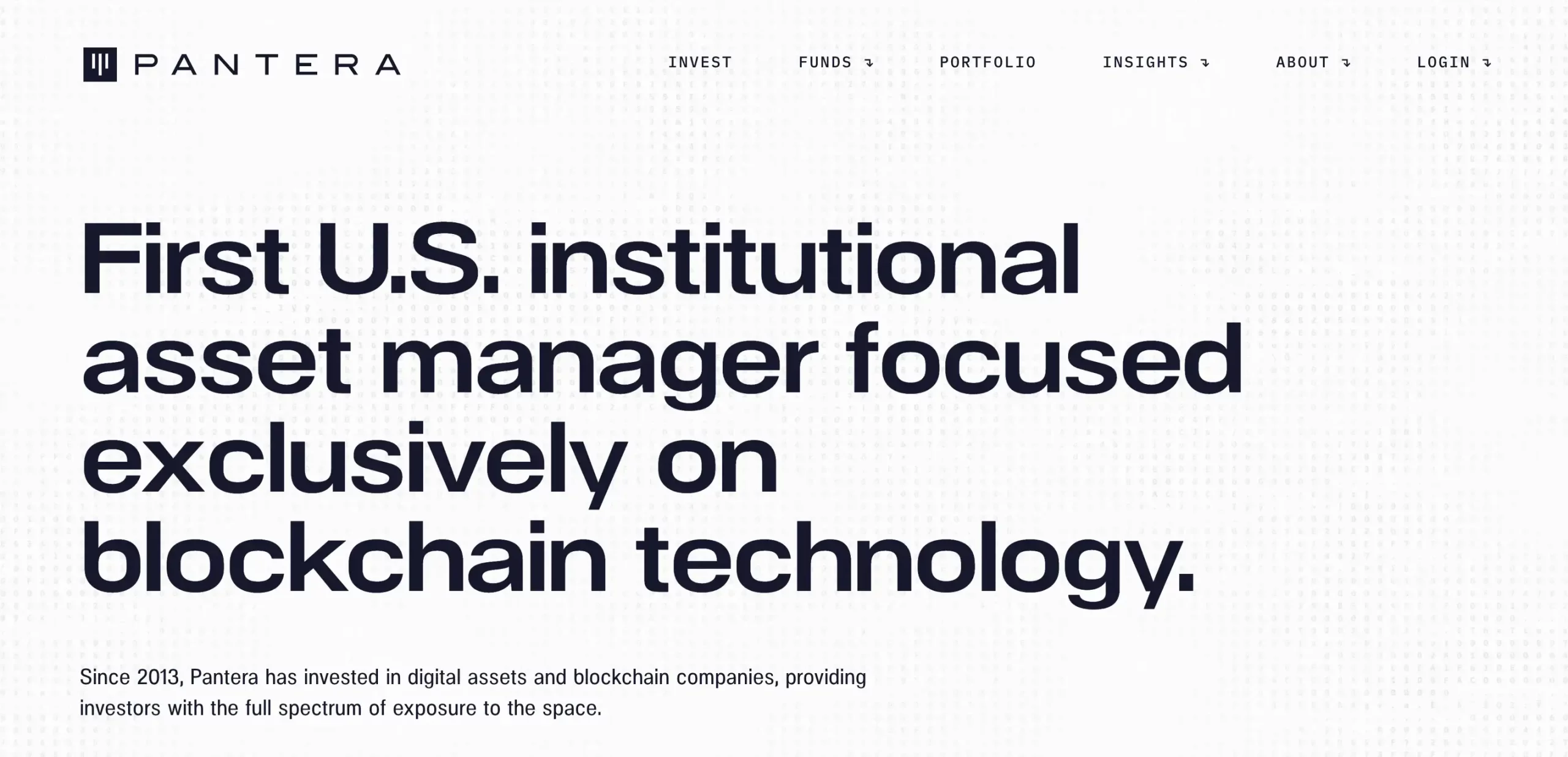As someone who has navigated through the tumultuous seas of the crypto market for quite some time now, I can confidently say that I’ve developed a keen eye for spotting opportunities – and potential pitfalls. One such opportunity is investing in crypto hedge funds, but it’s not for the faint-hearted or the unprepared.
Over the last few years, there’s been an increasing curiosity about cryptocurrencies. Consequently, more traditional financial institutions have started investing in digital assets. This trend has led to the appearance of crypto hedge funds and other intermediaries, aiming to connect the world of traditional banking with blockchain technology.
Consider a cryptocurrency hedge fund as the intersection of creativity and market turbulence, striving to harmonize risk control with profitability. Delving into the tactics, risk profiles, and past performance data of crypto hedge funds allows you to gain an edge in the crypto hedge fund market. Consequently, you can design your investment approach and make well-informed decisions about potential returns.
Today, I’d like to share some insights on crypto hedge funds – what they are and how you can leverage them for your advantage as a crypto investor. Let’s dive right into it!
What Are Traditional Hedge Funds?
As an analyst, I’d describe hedge funds as tools I use to balance market fluctuations and risks. By pooling resources from various investors, we create a diverse portfolio that reduces potential losses. The investments can span across different financial instruments like derivatives, equities, bonds, commodities, and foreign currencies, all with the aim of maximizing returns while managing risk effectively.
Originally, hedge funds specialized in handling investments while mitigating market risks; however, they’ve since gained a reputation as riskier, sophisticated investment options due to their intricate strategies. Furthermore, these funds frequently employ significant borrowing or leveraging in response to the volatile nature of financial markets.
What Are Crypto Hedge Funds?
Investment vehicles known as crypto hedge funds help navigate the intricacies of digital asset investments by collecting funds from various investors to purchase and sell cryptocurrencies. These funds aim for profit by implementing a strategic approach to their investments. This strategy may involve using crypto derivatives, such as perpetual contracts, options, and futures trading, in an effort to secure favorable results from their investment plans.
Furthermore, crypto hedge funds serve as intermediaries between investors and traders in the digital asset market, enabling investors to invest indirectly by delegating their assets to these funds for trading.
Absolutely, a cryptocurrency hedge fund specializes exclusively in managing crypto investments, in addition to employing conventional hedge fund strategies like stocks and bonds. These funds may also invest in venture capital firms and private equity for blockchain businesses, thereby providing diversified investment options that strengthen their digital asset management capabilities.
How Do Crypto Hedge Funds Work?
Are you interested in understanding the operations of cryptocurrency hedge funds? These entities gather funds from investors, imposing varying fees while earning profits by trading and managing a variety of crypto portfolios. Notably, they are less regulated than mutual funds and present several avenues for engaging in high-risk investment ventures.
Hedge funds function as collaborative investments led by fund managers, where they gather money from various investors. For cryptocurrency hedge funds specifically, these are suitable only for wealthy individuals who can handle larger management fees and potential risks due to their high net worth.
To play the game and tap into cryptocurrency hedge funds, you need to fulfill prerequisites such as having a specific minimum investment, being accredited, meeting certain financial standards, and possessing relevant experience. Once you qualify according to these conditions, you can leverage the fund managers’ skills to purchase, sell, and control a crypto asset portfolio with the goal of earning substantial profits in this rapidly changing environment.
Let us give you some stats that could help you understand better the crypto hedge fund niche:
- Crypto hedge fund revenue ranges from 1% to 4% of the invested amount, and investors are also obligated to pay a certain percentage of the earnings to the managing team.
- Approximately 44% of crypto-dedicated hedge funds have a 3+ year track record, and 56.2% have a fund between 1-3 years.
- Only 7.2% of crypto hedge funds have a 4+ year record.
The Best Crypto Hedge Funds and Venture Capital Firms

Over the next few sections, we’ll delve into some leading crypto investment funds and venture capital entities, providing insights into how they provide investors with an exceptional edge by capitalizing on the unpredictable nature of the cryptocurrency market.
Beyond that, crypto investment funds combine various tactics, backed by a deep grasp and expertise in the realm of blockchain and cryptocurrencies. It’s crucial, nonetheless, to conduct independent research before making any investment choices.
So, let’s get started and discover what makes some of the top crypto hedge funds special.
1. Pantera Capital

Pantera Capital is a renowned player in the crypto-hedge fund industry, being the first of its kind in the United States. It provides various funds and investment possibilities for its stakeholders, often focusing on promoting the burgeoning field of blockchain, particularly tradable tokens.
Consequently, the Pantera Liquid Token Fund adopts a decentralized finance methodology and uses a flexible strategy, investing in 15 to 25 types of liquid tokens. Additionally, it provides various capital investment opportunities, including blockchain venture equity, initial-stage token funds, and liquid digital currencies.
As an analyst, I’d like to clarify that potential investors should be prepared to invest a minimum of $100,000. Additionally, it’s important to note that there will be a 2% management fee charged on the total investment, and a 20% performance fee on any returns generated above the initial investment.
Additionally, Pantera Capital manages a company that specializes in digital assets such as cryptocurrencies and blockchain technology – often referred to as the Blockchain Fund. This fund presents a new opportunity for investors seeking to invest with Pantera Capital. To get started, a minimum investment of $1 million is required.
2. Brevan Howard Digital

Brevan Howard Asset Management is a well-known European firm that manages investment strategies, with a focus on global macro and digital assets. They cater to institutional clients and investors like sovereign wealth funds, corporations, and public retirement plans.
Furthermore, these investment specialists distribute funds across diverse asset classes like currencies, commodities, bonds, and stocks. Notably, it was only last year, 2021, that Brevan Howard Asset Management ventured into cryptocurrency hedge fund investments.
Due to this setup, BH Digital boasts more than 10 data analysts, over 15 investment strategists, including traders, and a large team of approximately 20 off-site blockchain developers. This configuration has established BH Digital as one of the prominent players in the crypto hedge fund sector.
Alongside its primary offerings, BH Digital provides extra services including fundraising for capital, aid with compliance, recruitment of talent, development of blockchain technology, public relations guidance, and more.
Using their large team and wealth of expertise, BH Digital significantly contributes to the cryptocurrency sector by managing staking, operating nodes, and governing networks. Notably, they raised over $1B from institutional investors in August 2022 for a specialized crypto investment fund. In March 2023, they bought Dragonfly Capital, a highly regarded crypto hedge fund, thereby strengthening their market position.
3. Multicoin Capital

As an analyst, I’m associated with Multicoin Capital, a dynamic entity that straddles two crucial aspects of the cryptocurrency market: functioning as a hedge fund for Bitcoin trading, and operating as a venture capital firm. Our unique niche lies within the realm of tokens and shares in the blockchain sector.
Furthermore, Multicoin Capital is known for being an innovator in the economic models for numerous cryptocurrency initiatives, often defying conventional industry standards.
Multicoin Capital’s approach aids in the growth of financial resources, obtaining tokens from cryptocurrency projects and stocks of blockchain companies.
4. Morgan Creek Digital

Morgan Creek Capital Management stands out among top cryptocurrency hedge funds, boasting more than two decades of experience in providing investment management services to institutions and eligible clients. These include educational institutions’ endowments, retirement plans, foundations, and private family offices.
Furthermore, Morgan Creek’s approach to investing is centered on providing a range of cryptocurrency investment options, including Bitcoin-focused funds.
Working together with Bitwise Asset Management, Morgan Creek invests in a variety of digital currencies via the Digital Asset Index Fund, which follows the market trends of well-known cryptocurrencies such as Bitcoin, Ethereum, Cardano, Polkadot, Avalanche, Litecoin, Uniswap, Cosmos, Bitcoin Cash, and Tezos.
5. Digital Currency Group (DCG)

Established in 2015, the Digital Currency Group (DCG) serves as an umbrella corporation housing several entities like Grayscale Investments, Genesis Global Trading, and CoinDesk. Unlike conventional hedge funds, DCG offers a unique strategy, managing both single-asset and diverse cryptocurrency investment portfolios.
As a crypto enthusiast, if you’re considering investing in specialized crypto funds such as the Grayscale Bitcoin Trust (GBTC), Grayscale Ethereum Trust (ETHE), or the Grayscale Smart Contract Platform Ex-Ethereum Fund, you can easily do so by participating in their private placement offerings.
DCG has a diverse portfolio of investments across various blockchain platforms. However, their primary cryptocurrency assets are primarily composed of Bitcoin, Ethereum, Ethereum Classic, Decentraland, The Sandbox, Filecoin, Horizen, Livepeer, and Zcash.
Despite having over $3.5 billion in assets, the wealth management division of DCG, which includes private investments, tax planning, and wealth advisory services, was shut down in January 2023 during the ongoing crypto winter. This decision was made despite its continued operation.
6. Galaxy Digital

Galaxy Digital functions similarly to other hedge funds, providing a variety of cryptocurrency investment opportunities including digital asset management, investing in cryptos, and mining.
The financial division of the company oversees more than a billion dollars worth of digital currencies, primarily through the Galaxy Bitcoin Fund and Galaxy Ethereum Funds. This involves investing in innovative blockchain startups and also engaging in crypto mining, which includes selling the mined cryptocurrencies.
Beyond this, Galaxy Digital has put money into several cryptocurrency initiatives, including BlockFi, Ripple, and Bitstamp. In the year 2019, they orchestrated a $30 million investment round for Bakkt, a prominent institutional crypto trading platform.
Through a collaboration with Silvergate Bank, Galaxy Digital established a cryptocurrency trading platform, GDT, catering specifically to institutional clients. This platform provides banking services for businesses dealing in cryptocurrencies.
7. Wave Digital Assets

Wave Digital Assets is a SEC-registered investment firm offering a blend of venture capital, cryptocurrency hedge funds, fund management, and private wealth services, with the goal of providing powerful investing opportunities for its clients.
Additionally, it’s worth noting that Wave manages investment portfolios totaling more than a billion dollars and has earned recognition from the United States Securities & Exchange Commission (SEC), placing them among the leading crypto hedge funds within the regulatory framework.
Crypto Hedge Funds Features
Active Trading Strategies
Instead of adopting the buy-and-hold strategy like conventional hedge funds, crypto hedge funds implement aggressive trading tactics by frequently buying and selling cryptocurrencies within brief time frames, capitalizing on market fluctuations.
The High-risk Profile
It’s worth noting that because of their unpredictable characteristics, investing in cryptocurrency hedge funds carries a significant level of risk. However, these investments also have the potential for substantial rewards.
Limited Availability
Because crypto hedge funds act swiftly by buying and selling assets, they often have restricted opportunities for potential investors due to their limited supply. Additionally, these hedge funds typically require a minimum investment of $100,000 to qualify.
Asset Diversification
As a researcher delving into the world of digital assets, I find that crypto hedge funds present a promising avenue for diversifying one’s portfolio. These funds offer investment opportunities in a variety of cryptocurrencies, allowing me to spread my risks and potentially maximize returns.
What to Consider Before Investing In a Crypto Hedge Fund
Exploring the realm of cryptocurrency investments, particularly crypto hedge funds, offers a promising opportunity. However, it’s crucial to be aware of the possible risks involved as well.
In the upcoming sections, we’ll cover crucial points to take into account before diving into cryptocurrency investment funds, along with strategies for reducing risk and maximizing profits.
- Risk Management & Tolerance: In the volatile crypto market, digital asset risk management and tolerance are essential as they directly determine your investment portfolio.
- Professional Management: It is essential to research the hedge funds’ reputation and their management team and determine if there’s a proven track record of their success.
- Investment Strategy: Arbitrage, quantitative trading, or venture capital investments? Be sure to understand the investment fund strategy, as they must align with your goals.
Make certain you thoroughly investigate the market and possible investment options, so you can make wise choices that match your objectives and risk level. This way, you’ll be making decisions based on accurate information rather than guesswork.
Crypto Hedge Fund FAQ
What is a cryptocurrency hedge fund?
Crypto hedge funds serve as an investment platform where collective funds from diverse institutional and personal investors are gathered with the goal of generating profits in the cryptocurrency market. Unlike conventional hedge funds, crypto-focused funds primarily concentrate on managing and investing in various financial instruments such as derivatives, stocks, bonds, commodities, and foreign currencies to secure a competitive edge.
Are crypto hedge funds safe?
Essentially, due to their inherent characteristics, cryptocurrency hedge funds tend to carry more risk compared to other investment methods. To maximize potential gains, it’s crucial that these funds are overseen by skilled and experienced professionals.
Is BlackRock a hedge fund?
BlackRock isn’t only a hedge fund but also operates as a fiduciary and asset manager.
Final Thoughts
Investing in crypto through specialized funds offers the advantage of experienced management for your digital asset investments. However, these funds carry significant risks that need thorough evaluation before investing.
To get started, it’s essential to do thorough research, familiarize yourself with the costs associated, and make sure the fund’s investment approach matches your objectives. Keep in mind that careful investment decisions are crucial when navigating the volatile landscape of cryptocurrencies.
Read More
- Gold Rate Forecast
- Forza Horizon 5 Update Available Now, Includes Several PS5-Specific Fixes
- ‘The budget card to beat right now’ — Radeon RX 9060 XT reviews are in, and it looks like a win for AMD
- Masters Toronto 2025: Everything You Need to Know
- We Loved Both of These Classic Sci-Fi Films (But They’re Pretty Much the Same Movie)
- Valorant Champions 2025: Paris Set to Host Esports’ Premier Event Across Two Iconic Venues
- Karate Kid: Legends Hits Important Global Box Office Milestone, Showing Promise Despite 59% RT Score
- Eddie Murphy Reveals the Role That Defines His Hollywood Career
- Discover the New Psion Subclasses in D&D’s Latest Unearthed Arcana!
- Street Fighter 6 Game-Key Card on Switch 2 is Considered to be a Digital Copy by Capcom
2024-08-09 16:26